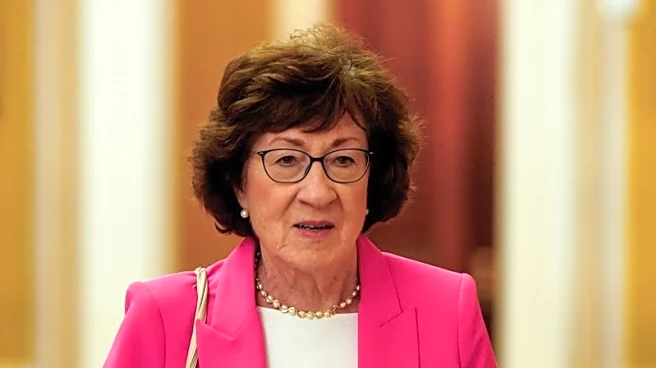What's Happening?
Ten years after the peak of Europe's migration crisis, Lesbos continues to grapple with its aftermath. The island was a key landing point for migrants fleeing war and poverty, with over a million arriving
in 2015 alone. While the flow of newcomers has slowed, the legacy of the crisis remains, with ongoing debates over migration policy and the treatment of asylum seekers. The EU has shifted towards stricter border controls, while local communities on Lesbos face challenges in integrating migrants.
Why It's Important?
The situation on Lesbos highlights the long-term impacts of migration on host communities and the need for sustainable solutions. The crisis has influenced EU migration policy, leading to a focus on border security and deterrence. This shift has implications for human rights and the treatment of asylum seekers. The legacy of the crisis continues to shape political discourse and public opinion in Europe, affecting relations between member states and their approach to migration.
What's Next?
The EU's migration pact, set to take effect next year, aims to establish common rules for asylum and migration across member states. However, critics argue that it may increase detention and erode the right to seek asylum. The situation on Lesbos remains fluid, with potential for further protests and legal challenges. Local communities continue to navigate the complexities of integrating migrants and addressing the social and economic impacts of the crisis.
Beyond the Headlines
The migration crisis on Lesbos reflects broader global trends, driven by conflict, poverty, and climate change. The situation raises ethical questions about the balance between security and humanitarianism, and the role of international cooperation in addressing migration. The legacy of the crisis highlights the need for comprehensive solutions that address both the immediate needs of migrants and the long-term impacts on host communities.









